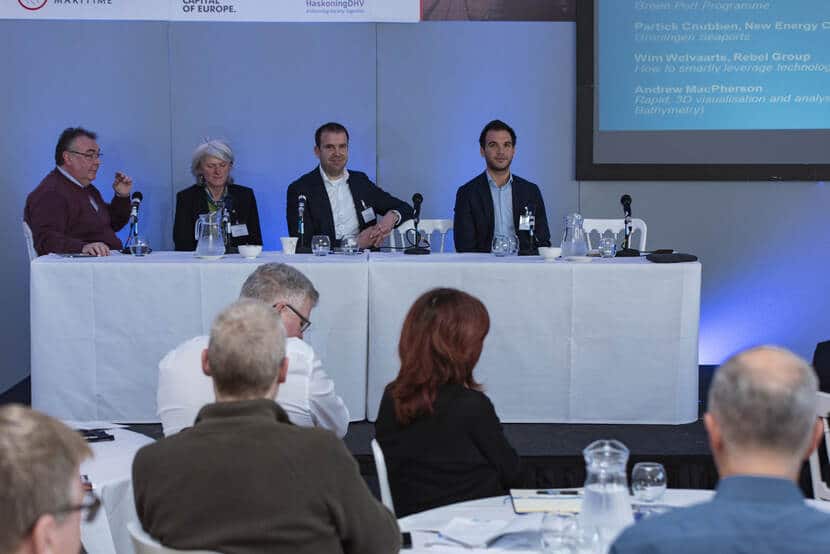Last Thursday 17th January the Netherlands Business Support Office Manchester together with Maritime UK organized the inaugural UK-NL Maritime Nations Forum in Liverpool, bringing together Dutch and British decision makers to discuss requirements for creating a thriving port innovation culture. The event was hailed a success by delegates and speakers alike.
“The idea behind the UK-NL Maritime Nations Forum was to provide a platform to British and Dutch ports to share their innovation challenges and successes and encourage an open conversation on how to create smart ports” says Marjolein Bouwers, Chief Representative at the Netherlands Business Support Office. “The Forum proved an excellent opportunity to discuss best practices between the two countries, and to create new connections to work together on a range of innovation themes.
The day started with presentations from UK and Dutch ports (as PD Ports, Port of Sunderland and Port of Immingham), including some interesting examples on their innovation strategy and plans for automation and digital transformation. The main connecting themes in the ports’ discussion were gate automation, the managing and sharing of data and the creation of a culture that embraces change.
Following on from the ports’ perspective, a number of organisations shared their showcases on successful innovation. Providing a snapshot of sustainable and data utilising trends, the topics covered anything from autonomous vessels to smart terminal design. University of Hull provided an insight into the Green Port Programme which aims to make Hull a world class centre for renewable energy. 3DEO talked about rapid 3D, visualisation and analysis of diverse data specifically a project at Belfast Harbour. Dutch company EVConsult presented their views on how e-trucks and autonomous ships can reduce emissions and have a successful business case in the maritime sector.
Another interesting case study came from the New Energy Coalition, describing a project in the Netherlands province of Groningen where 270,000 tons of hydrogen production powers homes and businesses. Also present was Rotterdam based the Rebel Group, whose goal is to create a positive impact by co-investing with their clients in designing future proof terminals.
Conference Chair Richard Ballantyne, CEO of the British Port Association, commented on the great atmosphere during the networking breaks and the quality of the presentations.
The afternoon programme was joined by representatives from MARIN, Deltares, and the Universities of Liverpool John Moores and Southampton to discuss the role of Maritime Research Institutes on the subject of port innovation.
The programme closed with two panel discussions on smart ports and how to create a culture of excellence. The impressive line-up included speakers from Peel Ports, Royal HaskoningDHV, Port of Rotterdam, Associated British Ports, Mersey Maritime, Port of Amsterdam and Maritime UK.
Ben Murray, Director of Maritime UK, said on the forum: “The first high-level Maritime Nations Forum between our two countries show a clear intent to strengthen relations and collaboration between our two maritime nations. At a time of great uncertainty for the UK as it leaves the European Union, we should celebrate that business is getting on with its job – fostering innovation, driving exports and creating jobs. The UK is leaving the EU, not Europe. Today’s event shows that British Industry is as keen as ever to build stronger links with our North Sea neighbour.”

